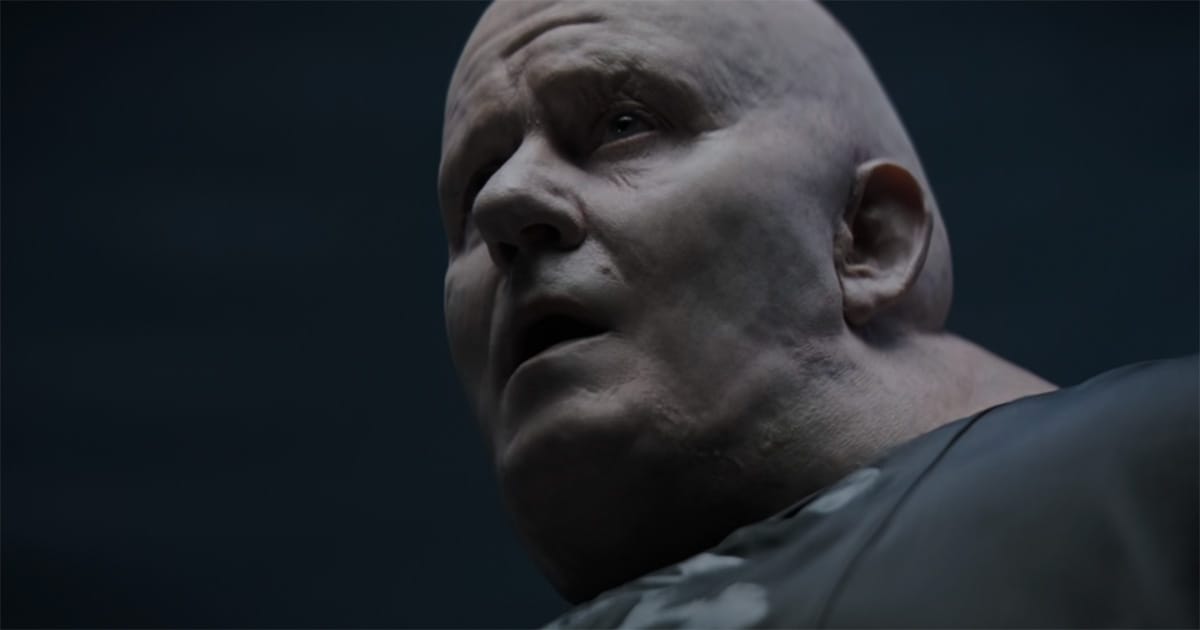Baron Harkonnen Power Without Conscience
Baron Vladimir Harkonnen’s rise and fall reveal the corruption at the heart of empire, where power without conscience turns ambition into decay in Frank Herbert’s classic “Dune.”

Baron Vladimir Harkonnen remains one of science fiction's most unforgettable villains. Frank Herbert's 1965 novel "Dune" introduced him as the embodiment of ambition without restraint. His shadow covers the Imperium, shaping politics, religion, and ecology alike.
The Baron is more than a cruel man. He is the system itself, inflated by comfort and power until both consume him. Half a century later, his story still warns about what happens when strength is used only to preserve itself.
Origins and Context
House Harkonnen began as a name spoken in disgrace. The family's ancestor Abulurd failed at the Battle of Corrin, the founding event of the Imperium. That defeat turned into a hunger that never ended. By the time Vladimir ruled, Giedi Prime reflected his will.
The planet's smoke and machinery served as both economy and identity. Herbert described him as a man who traded spirit for control, a ruler who believed cruelty was order and order was virtue. His empire was not built on inspiration but on fear, a system that seemed stable until it broke.
| Field | Information |
|---|---|
| Name | Baron Vladimir Harkonnen |
| Affiliation | House Harkonnen |
| First Appearance | "Dune" (1965) by Frank Herbert |
| Description | Ruthless head of House Harkonnen and ruler of Giedi Prime. A master manipulator known for his intelligence, cruelty, and reliance on anti-gravity suspensors that keep his massive body afloat. |
Feud with House Atreides
The rivalry between House Harkonnen and House Atreides defines the first "Dune" novel. The two houses mirror opposing ideas of leadership. The Atreides believe in loyalty and mutual duty.
The Harkonnens believe loyalty is weakness. Fear is the only tool that works. When Emperor Shaddam transfers Arrakis from the Baron to Duke Leto, the gesture appears generous. In truth, it is a setup for destruction. The Baron works with Imperial soldiers to wipe out his rivals and reclaim the planet that holds the spice. The act fuses political treachery with industrial greed, turning the desert itself into a battlefield for ideology.
Power and Suspensors
The Baron's body is an emblem of his soul. His enormous weight forces him to depend on anti-gravity suspensors to move. These hovering devices keep him upright yet never free. Herbert used them as a living metaphor for power that can no longer support itself.

The Baron's comfort hides decay. He floats above others but cannot walk among them. Kenneth McMillan's portrayal in the 1984 film turned this image into spectacle, coating the character with disease and madness. Stellan Skarsgård's modern version glides through shadow with silent menace. Both show the same truth. Technology can lift a man's body but not his spirit.
Family and Lineage
The Baron's dynasty reveals how corruption multiplies. His nephews, Glossu Rabban and Feyd-Rautha, serve as muscle and heir, each molded for a purpose rather than love.
Rabban rules by terror, while Feyd learns charm as a weapon. Beneath these relationships runs another secret. The Baron is the father of Lady Jessica through the Bene Gesserit breeding plan.
That connection makes him the grandfather of Paul Atreides. The story never treats this as sentiment. Instead, it underscores irony. The same blood that spreads cruelty also carries the potential for redemption. The Bene Gesserit call it design. Herbert calls it consequence.

Faces of the Baron
Every adaptation reflects its era's craft and philosophy. In David Lynch's 1984 film, the Baron becomes a living carnival of filth, full of laughter and decay. The visual excess suits the film's dreamlike tone.
The 2000 television miniseries replaced madness with intellect. Ian McNeice played a cultured manipulator who hid venom behind polish. Denis Villeneuve's films choose stillness instead of noise. Stellan Skarsgård moves slowly, speaks rarely, and radiates certainty. His presence fills the frame like smoke fills a room.
These performances trace the evolution of science fiction storytelling over four decades. The same villain became more real as the world around him did.
Role in the Story
The Baron drives every major turn in "Dune." He arranges the fall of House Atreides and plots to rebuild his control through Feyd-Rautha. His mind works like a ledger. Every life is a number, every alliance a transaction.
Herbert uses him to expose the machinery of empire, showing that cruelty is often organized rather than spontaneous. Yet the Baron's success plants the seeds of his failure. The cruelty that builds power also breeds rebellion. In trying to crush one noble house, he creates the hero who will unite the desert tribes against him.
Symbol and Legacy
The Baron represents civilization in decline. His world of Giedi Prime is rich but lifeless. Arrakis, ruled by his enemies, is harsh but vital. Herbert's contrast between the two planets defines the novel's moral center. The Baron treats life as something to consume.
Duke Leto treats it as something to preserve. This difference becomes the foundation for Paul's rise and the fall of the corrupt order that feeds him. The lesson endures because it speaks to every age that values comfort more than courage. The Baron's fall reminds readers that strength without virtue eventually collapses under its own weight.
Source List
- Frank Herbert "Dune" 1965
- David Lynch "Dune" 1984
- Dune Wiki Vladimir Harkonnen
- ScreenRant Baron Harkonnen Guide
- John Harrison "Frank Herbert’s Dune" 2000
- Denis Villeneuve "Dune Part One" 2021
- Denis Villeneuve "Dune Part Two" 2024

